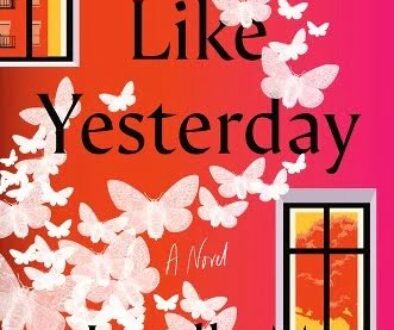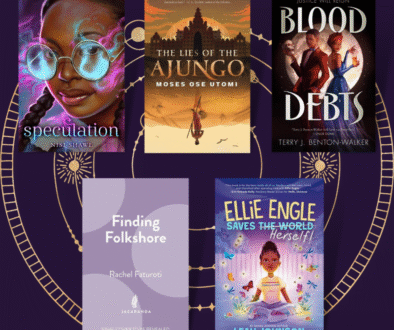The Plot Thickens: Grieving While Black

CONTENT WARNING: in Chapter 5, the author potentially misgenders a non-binary person.
Have you ever identified all too well with Issa Dee or Molly on Insecure during their tense work scenes with white colleagues? Have you ever wondered what the effects of intergenerational racist trauma have on your life? Are you seeking an anti-racist and/or healing approach to justice? Or maybe you haven’t deeply pondered any of these questions but now that you’ve read them, you think you just might? Well, I’m happy to say that Grieving While Black: An Antiracist Take on Oppression and Sorrow by Breeshia Wade, a professional caregiver and Buddhist practitioner, is just the book to aid you on this reflective journey.
If you’re like me, you’ve never considered grief outside of a major loss of life, in fact, you may try to detach yourself from lingering in emotions if you can help it. Though this barrier against feelings may serve some needs, it also prevents reconciliation and recognition of the acute pain beneath societal injustices. Grieving While Black: An Antiracist Take on Oppression and Sorrow brings these conflicting feelings to light and guides you through understanding how daily interactions with racism and other oppressions are opportunities for reflection and healing. Make no mistake, this is not a book offering self-help tips in resolution to issues that you have very little control over. Instead, Wade shares her own experiences as a caregiver to illuminate the ways in which Black grief, much as the rest of the Black experience, has been criminalized to the point of medical professionals reacting to it with fear instead of empathy. By sharing these events, she reflects on the myriad ways in which oppression has robbed the oppressed of agency and most brutally, time. Time with ourselves, time outside of labor, time with dying loved ones, time stripped away from our own lives. In Wade’s estimation, racism is not only a distraction, it is a thief of life in a way that so many privileged people have no bearing of.
If I were to try to sum up the way this book examines the role of grief in oppression, I would point you to this direct quote: “Grief is bigger than what’s already happened to us: it is connected to what we fear, what we love, and what we aspire toward.” Keeping the theme of time theft in mind, you could connote that the recognition of time taken away from what we love is grief. That fear of this time theft guides our actions and aspirations. Perhaps it is the primary function of the human condition to prevent these losses and a lot of the greed and oppression that we see is based on this. Those who are able to acquire the means to not labor and instead use this freed time for other endeavors, push their labor avoidance onto others. Because they do not value this labor, they underpay for it which then steals time away from those who take on this burden because they must find other ways to make up for this debt in order to survive. Therefore survival becomes the basis of understanding the levels of oppression—the more your survival, your ability to live, is threatened the more oppression you must endure. Fearing the inability to survive and protect your loved ones’ survival colors the way you move within the world. For, as Wade handily observes in a later chapter, “As long as we have something to fear, we must be attentive to how we avoid this fear.” While it is easy to trace how the wealthy have forced those with low wages to constantly live in this fear, we must also observe how people and institutions that we are in direct conversation with perpetuate this same harm by being unwilling to actively consider their own roles within societal oppression. Wade also highlights that the way transgressions have been addressed, by calling for passive patience from the oppressed rather than active patience from the transgressor—a wait and see approach—have led to the culture that seeks complacency rather than healing.
Almost deceivingly small, Grieving While Black: An Antiracist Take on Oppression and Sorrow is only 167 pages long, this book packs a heavy philosophical punch. I am a fast reader and it took me a few days to complete my read of it because it forces you to sit and think about the ramifications of major issues and their ripples within your life. Don’t worry, Breeshia Wade is a fantastic facilitator and the pacing of her writing welcomes you to sit in comfortable contemplation of the concepts shared therein. I recommend reading this book if you’re interested in the ways in which systemic issues have carved out our realities and are in a space to consider what it means to fight for justice outside of what has been normalized by society. If you’re like me, you’ll leave this book heavily annotated and brimming with tons of new ideas!



